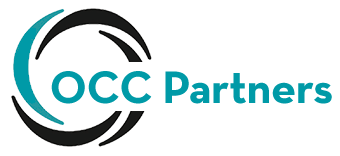Beginner’s Guide to Networking for Healthcare Professionals

Building connections and networking, is critical for everyone today, and can be very useful for healthcare professionals. Whether you’re a Physical Therapist, Registered Nurse, LPN, Dental Professional, Physician, or in another specialty area, it’s an advantage for your career.
Our world is getting smaller, as Stacey says in her blog on One Hour Translation, ‘we often find ourselves connecting with people from one job to another, or with people who leave and move to another position, you’re likely to find it useful at points throughout your career.’
Several years ago, I was encouraged to begin networking and sought out resources to figure out how, including Keith Ferrazzi, and his book, Never Eat Alone, to better understand the mechanics of how to do it. And while that helped me launch my networking efforts, I quickly realized that sometimes it can be easy, but other times it’s a challenge. Here’s suggestions and ideas for it all.
First, if you’re not on LinkedIn already, set up a LinkedIn profile. Keep it simple, but professional. This is a professional networking site, so never put anything too personal or social on it. If you’re concerned about privacy, you can adjust the settings to better match your comfort level. Then, once you’ve got your own profile, invite a peer to connect with you, and another and another. It’s also a great idea to connect with people you’ve met at school, or at any organizations you belong to. And, try to build 75 connections or more to start. This is an arbitrary number, and a guide to help make it a useful tool. You may not need the connections today, but at some point, you’re likely to consider them valuable.
Let’s talk about why you’re networking. There can be several reasons; you’re looking for a new position, you want to stay connected with talented individuals you’ve met, you want to connect with potential employers, or you know it’s just something you should do. For healthcare professionals, these reasons can also include:
- Building connections with other therapists, doctors, and other healthcare professionals, which may develop into partnerships or help you to land future patients.
- Knowledge and advice of other therapy professionals about different or innovative treatments and techniques.
- Awareness of recent research, upcoming events, and issues your profession is currently facing.
- More professional options. When meeting other professionals in your expertise, you may learn about another position you’d be interested in.
 Whatever your reason for networking, for it to be useful and be good at it, you need a focus. Several years ago, I learned the hard way what my motivation would be. My family and I were on a trip driving through to another state when we were stopped by the highway patrol on our route. After reviewing our license and talking with us, the officer said, ‘Recently I received some valuable assistance from someone I didn’t expect, and they wouldn’t let me compensate them, they said, ‘pay it forward.’ So, I’m going to pay it forward, and if you agree to do that also, you can go on with your trip and I won’t give you a violation.’ That was the beginning of a commitment to pay it forward. Yes, it’s a simple life story, but it was a poignant lesson I learned and how it impacted my networking was important. After some thought, I decided to make ‘pay it forward’ my motivation for networking. So, as I began reaching out to connect with others, I looked at ways I might be able to help them. Often there aren’t any specific ideas that emerge, and they may end up helping you instead, but knowing my motivation made it substantially easier and more fun to network. And the rewards have been immense – from those that I helped professionally and personally, to those that have helped me in unexpected ways.
Whatever your reason for networking, for it to be useful and be good at it, you need a focus. Several years ago, I learned the hard way what my motivation would be. My family and I were on a trip driving through to another state when we were stopped by the highway patrol on our route. After reviewing our license and talking with us, the officer said, ‘Recently I received some valuable assistance from someone I didn’t expect, and they wouldn’t let me compensate them, they said, ‘pay it forward.’ So, I’m going to pay it forward, and if you agree to do that also, you can go on with your trip and I won’t give you a violation.’ That was the beginning of a commitment to pay it forward. Yes, it’s a simple life story, but it was a poignant lesson I learned and how it impacted my networking was important. After some thought, I decided to make ‘pay it forward’ my motivation for networking. So, as I began reaching out to connect with others, I looked at ways I might be able to help them. Often there aren’t any specific ideas that emerge, and they may end up helping you instead, but knowing my motivation made it substantially easier and more fun to network. And the rewards have been immense – from those that I helped professionally and personally, to those that have helped me in unexpected ways.
So, why do you network? Think about it and decide why you want to build your professional network, choose your motivation and focus.
Next, join a local professional organization. If you can’t find one you’re interested in, try finding an organization to volunteer at, and become involved with volunteering. Volunteering can be a great resource for connecting with like-minded professionals.
 Start meeting people face to face, whether it’s at conferences, continuing education, or social. It will all be beneficial, and you don’t need to connect with everyone, but if you can connect with one or several people you respect, connect with them later via LinkedIn, and keep an eye on their progress and stay in touch with everyone in the network you’re building.
Start meeting people face to face, whether it’s at conferences, continuing education, or social. It will all be beneficial, and you don’t need to connect with everyone, but if you can connect with one or several people you respect, connect with them later via LinkedIn, and keep an eye on their progress and stay in touch with everyone in the network you’re building.
Last, as you approach networking, keep your approach positive and professional. Don’t approach networking from the point-of-view, what can I gain from this connection? Instead, your approach should be on connecting with talented and interesting people.
Throughout the years, networking has proved to be rewarding in every aspect, professionally of course, and several times over, but also socially and personally.



 Seek out a couple sources for advice, friends who have interviewed recently, and website blogs. On the internet, research topics like ‘interviewing advice’ or ‘interview questions’. Spend time reviewing the information you discover before you begin your preparation. Your preparation before the interview will make a huge impact on how well you do at the interview.
Seek out a couple sources for advice, friends who have interviewed recently, and website blogs. On the internet, research topics like ‘interviewing advice’ or ‘interview questions’. Spend time reviewing the information you discover before you begin your preparation. Your preparation before the interview will make a huge impact on how well you do at the interview. This is a challenging question for many to answer. Should you tell your current salary, should you say what you’re hoping to get? Or, should you respond that you’re open to ‘market’ compensation?
This is a challenging question for many to answer. Should you tell your current salary, should you say what you’re hoping to get? Or, should you respond that you’re open to ‘market’ compensation? Since you know ahead of time that there will likely be difficult questions, your best action is to prepare for them ahead of time. While you’ll never know exactly which questions you’re going to be asked, our recommendation is to prepare three to four stories of challenging experiences you’ve had and the action you took to resolve a problem and what you learned from the experience. While this won’t arm you to answer any question, it will generally help you answer many of them. As you prepare your responses ahead of time, write down your examples, review them, edit until they’re succinct. Then review them with a family member or friend and listen for any possible changes you should make, or any additional information you should be including.
Since you know ahead of time that there will likely be difficult questions, your best action is to prepare for them ahead of time. While you’ll never know exactly which questions you’re going to be asked, our recommendation is to prepare three to four stories of challenging experiences you’ve had and the action you took to resolve a problem and what you learned from the experience. While this won’t arm you to answer any question, it will generally help you answer many of them. As you prepare your responses ahead of time, write down your examples, review them, edit until they’re succinct. Then review them with a family member or friend and listen for any possible changes you should make, or any additional information you should be including.
 Here’s a fundamental example and it starts early in our lives…When you were in middle school or high school and friends wanted you to hang out, rather than study for a test, or practice your sport, pursue your music, what happened? They applied pressure. They coaxed, they prodded, and sometimes they deserted you. Or what happens if you aced tests all the time, were a top student, became the captain of a team, or got were becoming an accomplished musician? Some of your friends and peers mocked you because you were unavailable, busy going after your own plan. Your success does NOT come unconditionally. It comes with a price. It can be lonely at first to not settling for average. But by focusing on your goals and understanding that… in the end, your own self, and those you love will be better for it, and you will realize you can do it.
Here’s a fundamental example and it starts early in our lives…When you were in middle school or high school and friends wanted you to hang out, rather than study for a test, or practice your sport, pursue your music, what happened? They applied pressure. They coaxed, they prodded, and sometimes they deserted you. Or what happens if you aced tests all the time, were a top student, became the captain of a team, or got were becoming an accomplished musician? Some of your friends and peers mocked you because you were unavailable, busy going after your own plan. Your success does NOT come unconditionally. It comes with a price. It can be lonely at first to not settling for average. But by focusing on your goals and understanding that… in the end, your own self, and those you love will be better for it, and you will realize you can do it. Average comes in all shapes and forms and attacks you in ‘so’ many ways it’s challenging to overcome. It’s there in your head, in your friends, even in your family. No one means to send you ‘average’ intentions, but they often do. Because average is what most people are. And to compensate for that, we find flaws in those who are successful.
Average comes in all shapes and forms and attacks you in ‘so’ many ways it’s challenging to overcome. It’s there in your head, in your friends, even in your family. No one means to send you ‘average’ intentions, but they often do. Because average is what most people are. And to compensate for that, we find flaws in those who are successful.





 It all starts when the recruiter reaches out to you about your availability for a phone interview. When they do, and they will, offer a couple blocks of time, not just one. If you only offer one time, it often requires multiple back and forth emails that delay your interviewing. Also, consider that the person interviewing you may not be in the same area code, so provide availability that would accommodate multiple parts of the country. Many companies may have an office in your city, but their recruitment may be in another or a different state. Even if you know where the home office is, the recruiter could be somewhere else. Again, suggest multiple blocks of time you’re available that could be accommodate east coast and west coast callers if needed. And, include the phone number that you can be reached with your area code. Plain and simple, doing these two simple tasks can speed up the entire process for you.
It all starts when the recruiter reaches out to you about your availability for a phone interview. When they do, and they will, offer a couple blocks of time, not just one. If you only offer one time, it often requires multiple back and forth emails that delay your interviewing. Also, consider that the person interviewing you may not be in the same area code, so provide availability that would accommodate multiple parts of the country. Many companies may have an office in your city, but their recruitment may be in another or a different state. Even if you know where the home office is, the recruiter could be somewhere else. Again, suggest multiple blocks of time you’re available that could be accommodate east coast and west coast callers if needed. And, include the phone number that you can be reached with your area code. Plain and simple, doing these two simple tasks can speed up the entire process for you. Dress comfortably, wear whatever inspires you to have your best conversations, so wear whatever you can be comfortably relaxed in.
Dress comfortably, wear whatever inspires you to have your best conversations, so wear whatever you can be comfortably relaxed in. After you’ve answered a question, a great suggestion is to ask the interviewer if you’ve answered their question. It’s a great opportunity for them to bring up something that may need clarification. And, while the interview is your time to highlight yourself, don’t dominate the conversation, wait for the interviewer to ask questions. And then respond to the question and be as specific as you can. With that said, it’s also your time to get some of your questions answered, and you can ask right in the beginning or at the end, if you can ask a few questions if the interviewer hasn’t brought it up.
After you’ve answered a question, a great suggestion is to ask the interviewer if you’ve answered their question. It’s a great opportunity for them to bring up something that may need clarification. And, while the interview is your time to highlight yourself, don’t dominate the conversation, wait for the interviewer to ask questions. And then respond to the question and be as specific as you can. With that said, it’s also your time to get some of your questions answered, and you can ask right in the beginning or at the end, if you can ask a few questions if the interviewer hasn’t brought it up.